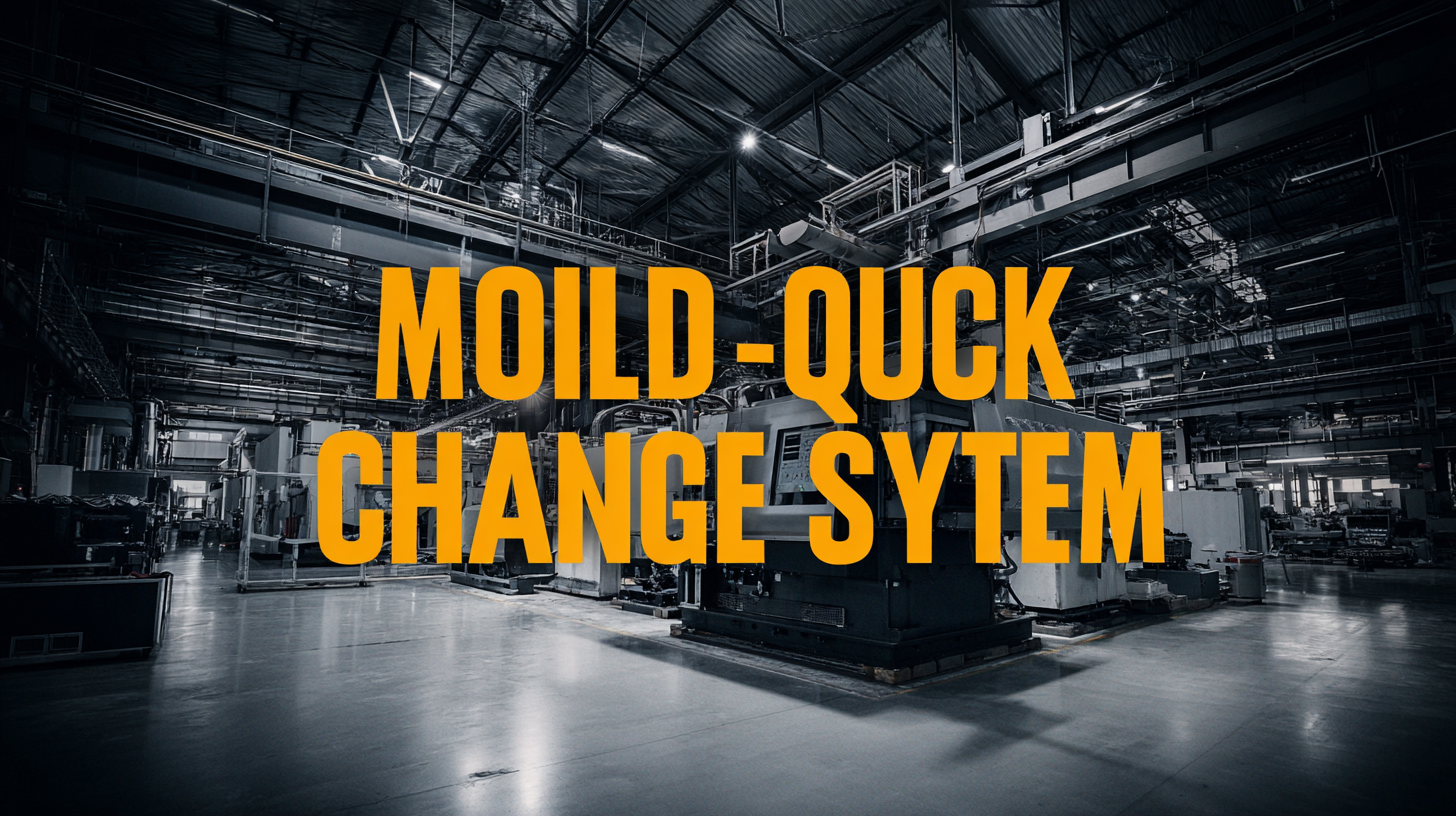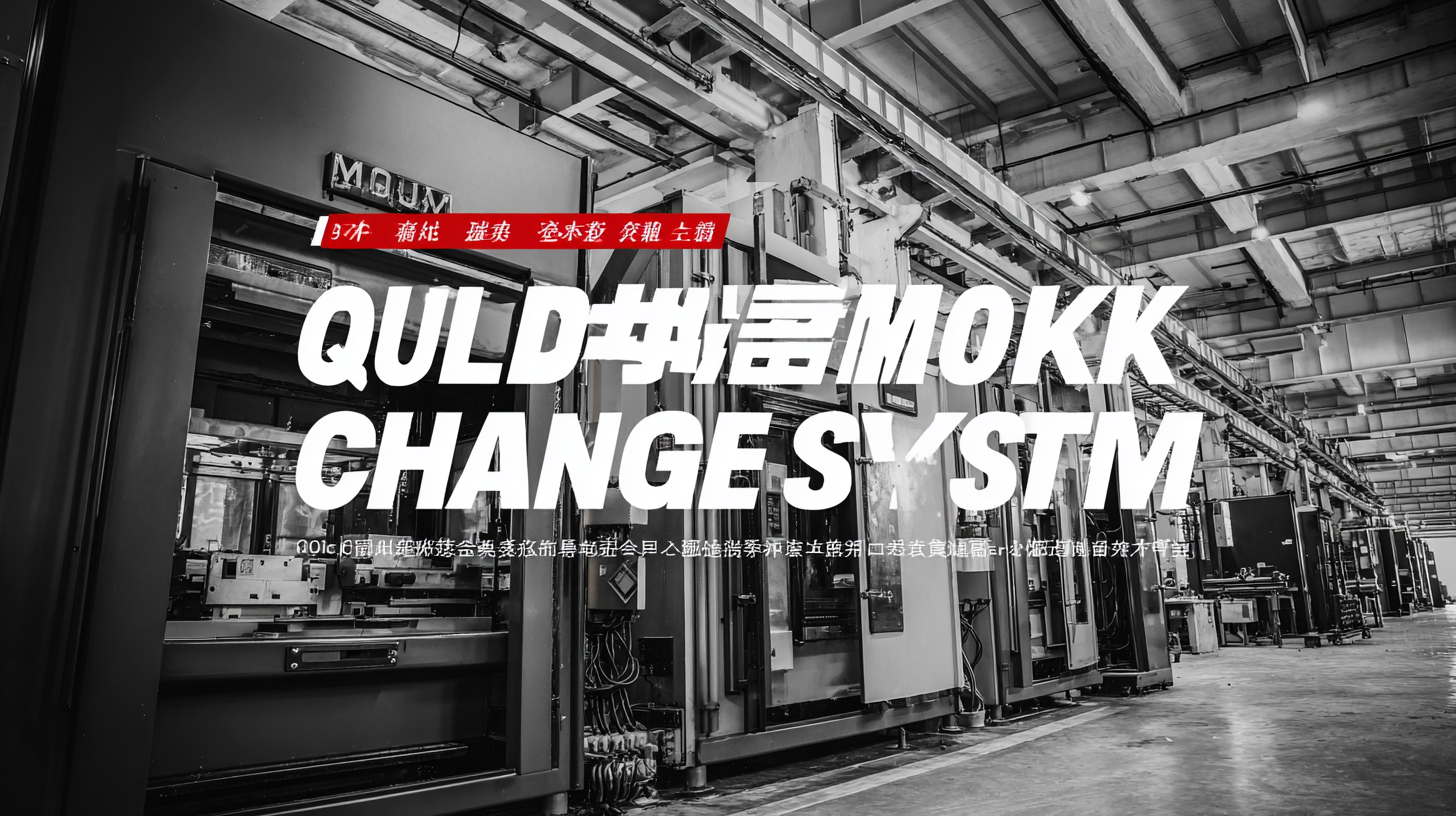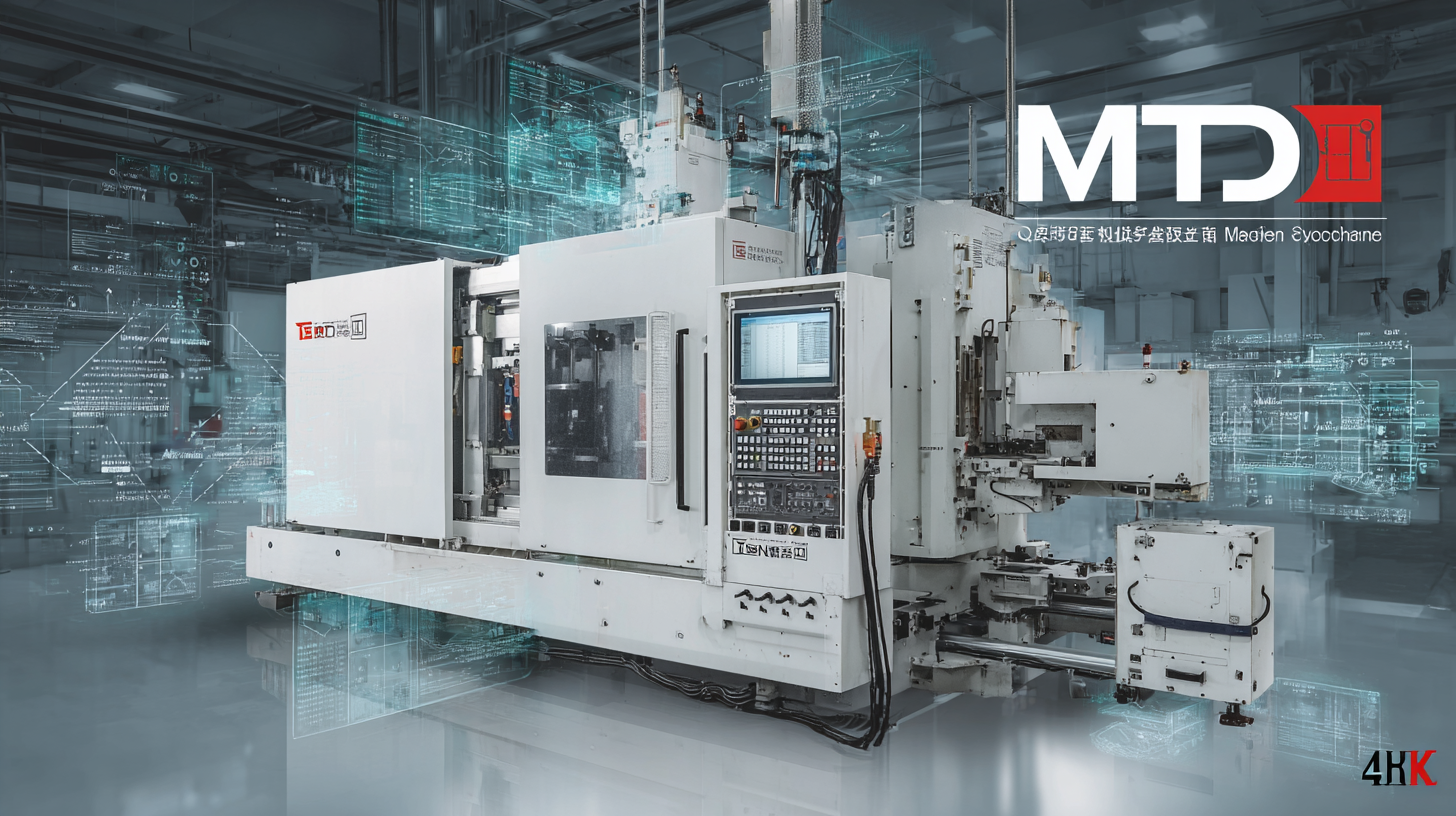China's Best Quick Mold Change System Redefining Quality for Global Markets
In today's fast-paced manufacturing landscape, the demand for efficiency and quality has never been more pressing, particularly in the realm of injection molding. The Quick Mold Change System (QMCS) has emerged as a game changer, offering manufacturers the ability to significantly reduce downtime and enhance productivity. According to a report by MarketsandMarkets, the global market for mold change systems is expected to reach $1.2 billion by 2025, growing at a CAGR of 6.5%. This surge reflects a broader trend where manufacturers strive to meet the increasing demands for shorter lead times and higher quality output. China's innovative technology in QMCS not only exemplifies world-class manufacturing but also positions itself as a global leader in exporting these solutions, enabling industries worldwide to redefine their operational efficiency. As international markets continue to seek high-performance systems, China's commitment to quality in its Quick Mold Change System is a point of pride, solidifying its status as a manufacturing powerhouse on the global stage.

The Impact of Quick Mold Change Systems on Production Efficiency in China
The implementation of Quick Mold Change (QMC) systems in China's manufacturing sector is significantly enhancing production efficiency, a critical factor in the face of increasing global competition. As industries shift toward faster production cycles — akin to the principles outlined in fast fashion — QMC systems enable manufacturers to reduce downtime and improve responsiveness. The introduction of these systems can cut changeover times by up to 70%, which is particularly beneficial in industries that demand rapid adaptation to market trends and consumer preferences.
Recent studies highlight that the global market for QMC systems is projected to grow, reflecting a broader trend towards automation and enhanced manufacturing processes. The plastics processing sector, for example, is facing stringent quality demands that necessitate more agile production capabilities. In response, integrating QMC systems can yield substantial benefits in both efficiency and cost-effectiveness, positioning Chinese manufacturers to meet the challenges of a fast-paced global marketplace. As China leads in innovative manufacturing technologies, the further adoption of QMC systems could serve as a catalyst for quality redefinition across various industries.
Key Industry Standards for Quick Mold Change Systems in Global Trade
In the fast-evolving landscape of global manufacturing, the importance of efficient mold change systems cannot be overstated. Quick Mold Change Systems (QMCS) are pivotal in minimizing downtime and enhancing productivity. Key industry standards for these systems play a crucial role in ensuring consistency, reliability, and performance across borders. As manufacturers strive to meet increasing demands for customization and speed, adhering to international benchmarks becomes essential for sustaining competitive advantages in the market.

China's innovative approach to mold change technology is significantly impacting global trade dynamics. By prioritizing quality standards that align with international expectations, Chinese manufacturers are not only elevating their product offerings but also setting new benchmarks for excellence. The integration of advanced automation and precise engineering practices into QMCS design fosters operational efficiency, making it easier for companies worldwide to adopt these systems and optimize their production processes. This commitment to quality and standardization is paving the way for a more interconnected and efficient manufacturing ecosystem.
Analyzing the ROI: Quick Mold Change Systems vs. Traditional Methods
In the competitive landscape of manufacturing, the efficiency of production processes directly impacts profitability. Quick Mold Change Systems (QMCS) have emerged as a transformative solution, significantly improving turnaround times compared to traditional methods. With conventional mold-change processes often taking hours, businesses can lose valuable production time. In contrast, QMCS can reduce this time to mere minutes, enabling manufacturers to respond quickly to market demands and increase their output without compromising on quality.
The return on investment (ROI) associated with Quick Mold Change Systems is compelling. By minimizing downtime, companies can optimize their production schedules, leading to increased efficiency and lower operational costs. Furthermore, the enhanced flexibility offered by QMCS allows manufacturers to adapt to varying customer needs without the lengthy setup times that characterize traditional methods. This adaptability not only improves customer satisfaction but also positions companies to seize new market opportunities rapidly, securing a competitive edge in a dynamic global marketplace.
Embracing QMCS is not just a technological upgrade; it’s a strategic move that promises substantial financial returns and sets the stage for future growth.
Export Certification Requirements: Navigating Compliance for Quick Mold Technologies
In the realm of quick mold change technologies, navigating export certification requirements has become a pivotal concern for manufacturers aiming to penetrate global markets. With advancements like rapid integrated molding technologies being developed, companies must ensure compliance with international standards to maintain competitiveness. The capability to produce carbon-fiber-reinforced plastic components at unprecedented speeds exemplifies the innovation driving this industry, but without adherence to certification guidelines, even the best technologies can face barriers to entry.
As manufacturers adopt newer, faster methodologies, such as those that can streamline production processes tenfold compared to conventional setups, the imperative for robust certification awareness grows. Quick mold technologies not only enhance production efficiency but also necessitate a keen understanding of regulatory landscapes. Ensuring compliance will enable companies to leverage these innovations while safeguarding product quality and integrity in diverse markets around the globe. As the industry evolves, collaboration between technology developers and regulatory bodies will be critical in fostering an environment where innovative solutions can thrive.
Case Studies: Successful Implementations of Quick Mold Change Systems in Diverse Markets
The implementation of Quick Mold Change (QMC) systems has seen remarkable success across various industries, significantly enhancing productivity and reducing downtime. According to a report by MarketsandMarkets, the global mold market is projected to grow from USD 45.3 billion in 2020 to USD 61.9 billion by 2025, indicating a growing demand for efficient production techniques. Companies adopting QMC systems report a reduction in mold change times by as much as 70%, which translates to increased operational efficiency and substantial cost savings.
In automotive manufacturing, for example, leading companies have integrated QMC systems resulting in enhanced flexibility to produce multiple vehicle models on the same assembly line. A case study from a prominent automotive supplier showcased that the shift to QMC reduced changeover times from eight hours to just two hours, allowing for a more responsive production process. Additionally, in the consumer goods sector, organizations utilizing QMC have observed a 30% increase in production capacity, thereby meeting the rising consumer demands swiftly and effectively. These advancements not only benefit operational efficiency but also improve the overall quality and competitiveness of products in the global market.

 English
English Español
Español Português
Português русский
русский Français
Français 日本語
日本語 Deutsch
Deutsch tiếng Việt
tiếng Việt Italiano
Italiano Nederlands
Nederlands ภาษาไทย
ภาษาไทย Polski
Polski 한국어
한국어 Svenska
Svenska magyar
magyar Malay
Malay বাংলা ভাষার
বাংলা ভাষার Dansk
Dansk Suomi
Suomi हिन्दी
हिन्दी
